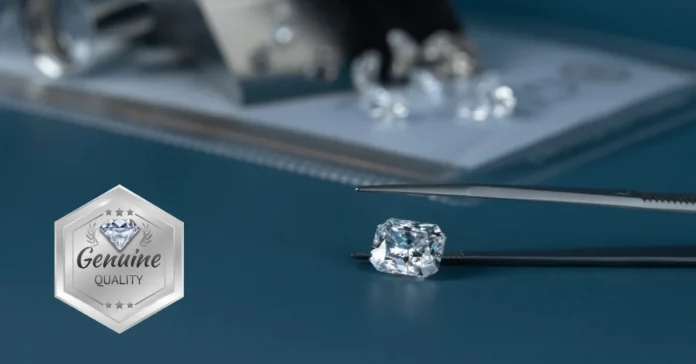Your boots can make or break your shift. If you need reliable footwear for law enforcement, this guide will help you find the right pair. Keep reading for key features and practical tips.
A dependable pair of boots supports your movement, keeps you safe, and helps reduce fatigue on long days. With so many options out there, it’s easy to feel overwhelmed.
But when you know what to look for, the choice becomes clear and simple. Read for some tips!
Comfort is Key
Being on your feet all day takes a toll. A boot should feel good from the first wear. Look for soft insoles that mold to your foot. Padded collars and tongues help reduce pressure. Make sure the boot allows your toes to move freely.
If a boot feels stiff, it could cause blisters or pain. Long hours need long-lasting comfort. Good footwear helps you stay focused, not distracted by sore feet.
Support Matters
Proper support protects your feet and ankles. Law enforcement duties involve quick turns, running, and uneven ground. A supportive midsole helps absorb impact.
Look for ankle support that’s firm but not too tight. Arched soles can help prevent flat-foot fatigue. A solid heel counter gives stability.
Your feet should feel locked in without being restricted. Supportive boots reduce long-term foot problems.
Breathability Counts
Hot feet can lead to discomfort and sweat. Breathable materials help reduce this. Mesh linings or vented sides are helpful. They allow air to flow and moisture to escape.
Dry feet are less likely to blister. Odor is also reduced with better airflow. Breathability is important for both comfort and hygiene. Don’t overlook this feature.
Slip Resistance
Law enforcement officers walk on many surfaces. From wet floors to icy pavements, grip is critical. Slip-resistant soles can prevent falls. Look for tread patterns that offer traction.
Rubber soles usually give the best grip. Oil-resistant soles are useful in some work areas. Safe footing boosts confidence during fast movements. It’s a key feature in any duty boot.
Durability and Wear
Boots should last a long time. Duty footwear faces harsh conditions. Choose boots made of tough leather or reinforced materials. Check if the stitching looks strong.
The sole should not peel after a few months. Durable boots save money over time. They also mean fewer distractions during shifts. Think long-term when you pick a pair.
Waterproofing Needs
Wet feet are a problem on the job. A waterproof boot can stop water from getting in. Rain, puddles, or spilled liquids are common hazards. Look for sealed seams and treated leather.
Some boots also have waterproof membranes inside. Wet socks can lead to colds or even infections. Dry feet keep you focused and alert. Always consider the weather and environment.
Weight and Flexibility
Heavy boots can slow you down. Lightweight boots help you move fast. They also reduce fatigue over time. But don’t trade weight for strength. Choose boots that balance both.
Flexible soles help your feet move naturally. A boot that bends with your foot is more comfortable. Test the flex before buying.
Break-in Time
Some boots need time to feel right. If a boot is painful at first, it may get better with wear. Others are comfortable out of the box. Try walking in them indoors first.
Make sure there are no tight spots. Gradual wear can help avoid blisters. Don’t wear new boots on long shifts right away. Give them time to adjust to your foot.
Fastening Style
Boots come with laces, zippers, or a mix of both. Laces offer a custom fit. Zippers make boots quick to put on and remove. Combo styles offer the best of both worlds.
Pick what suits your routine. Make sure the fastening stays secure all day. Broken laces or zippers can be a hassle. The right style saves time and effort.
Toe Protection
Some duties require reinforced toe areas. Steel or composite toes can protect your foot from impact. If your role includes dealing with heavy gear or crowded spaces, consider this.
Toecaps can add weight, so try them on first. Not all roles need toe protection, but some do. Check your job’s requirements. Safety should always come first. Comfort should follow.
Terrain Readiness
You may be indoors, outdoors, or both. Think about where you work most. Urban areas need flexible soles and grip. Rural or uneven ground needs deeper treads.
Some boots work well in both settings. Test the sole’s grip on different surfaces. A good sole can handle many terrains. That adds value to the boot.
Maintenance and Care
Boots last longer with good care. Clean them after each shift. Use proper products for leather or fabric. Dry them out if they get wet. Regular care keeps them looking and performing well.
Check laces, soles, and seams often. Replacing parts is cheaper than new boots. A cared-for boot can last for years.
Trusted Recommendations
Sometimes, a well-reviewed boot helps make the choice easy. Talk to other officers about what they wear. Some brands are known for police work. For instance, many trust Altberg Police Boots for comfort and toughness.
These boots meet the demands of the job well. Always try before you buy. What works for one person may not work for another. Testing is key.
Shock Absorption
Officers face a lot of impact throughout the day. Boots with good shock absorption reduce pressure on your feet and joints. Midsoles made with soft yet supportive materials are best.
They help you feel less tired at the end of a shift. If your knees or heels hurt, shock support may be the issue. Look for cushioned footbeds as well. This feature also helps during high-speed chases or long patrols. Comfort starts from the sole up.
Choose the Right Footwear for Law Enforcement Duties
Choosing the right duty boots is a small decision with a big impact. The right fit can protect your feet, support your movements, and help you get through long hours with less strain.
Whether you’re in patrol, traffic, or tactical roles, good footwear for law enforcement is essential. Take the time to compare features and test different options.
Your feet are one of your most important tools- protect them well.
Hooked by this topic? Discover a goldmine of insights on our blog!



